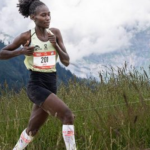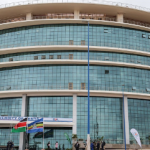On Thursday, clashes between thousands of students armed with sticks and rocks and armed police in Dhaka resulted in thirteen fatalities, marking the deadliest day of protests in Bangladesh so far. The unrest, which has led to the deaths of at least 19 people this week, is driven by opposition to a policy that allocates government jobs based on quotas.
The deceased from Thursday’s violence included a bus driver who suffered a gunshot wound to the chest, a rickshaw-puller, and three students. The violence also left hundreds injured as police used tear gas and rubber bullets to disperse the crowds, who responded by setting fire to vehicles, police posts, and other properties.
The protests, the largest since Prime Minister Sheikh Hasina’s reelection earlier this year, are fueled by high youth unemployment, with nearly 20% of Bangladesh’s 170 million people unemployed or out of education.
Demonstrators are demanding an end to the policy that reserves 30% of government jobs for the families of those who fought in the 1971 war of independence from Pakistan.
Although Hasina’s government abolished the quota system in 2018, a recent High Court ruling reinstated it. The government has appealed this decision, and the Supreme Court has suspended the High Court’s order pending a hearing on August 7.
U.N. Secretary-General Antonio Guterres has called for restraint from all parties and urged the authorities to investigate all acts of violence and hold those responsible accountable, according to U.N. spokesperson Stephane Dujarric.
“The secretary-general encourages the meaningful and constructive participation of youth to address the ongoing challenges in Bangladesh. Violence can never be the solution,” Dujarric told reporters.
At least 11 of the deaths on Thursday occurred in Dhaka. The capital’s main university campus had been the site of the worst of the nationwide protests, but on Thursday there were stronger demonstrations in other pockets of the city.
Law Minister Anisul Huq said the government was willing to hold talks with the protesters.
The demonstrators refused, saying, “Discussions and opening fire do not go hand in hand”.
“We cannot trample over dead bodies to hold discussions. Discussions could have taken place earlier,” protest co-ordinator Nahid Islam told Reuters.
Hasina, the daughter of Sheikh Mujibur Rahman, who led Bangladesh to independence, has so far rejected protesters’ demands that the jobs policy be scrapped, saying the matter is in the hands of the courts.
All public and private universities were shut indefinitely on Wednesday, and security forces were deployed at campuses to keep order.



